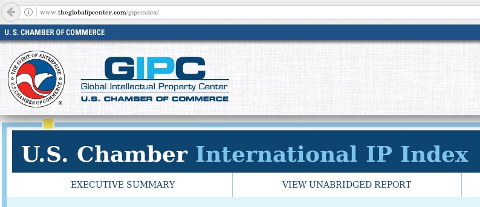

"Do not be misled by "US" in their names; the Chamber of Commerce and USTR do not represent the US; they represent a few people in the US, usually to the detriment of the republic."This morning we saw the article "US leads the way in Madrid trade mark filing" and another new one titled "US Patent System Remains 1st In The World, Despite Errors In Chamber Rankings" (by Josh Landau, the Patent Counsel at the CCIA, where "he represents and advises the association regarding patent issues," according to his biography).
We already wrote several responses to these Chamber of Commerce lies; others too have complained about these lies. The 'Chamber' basically shames the US in an effort to change patent policy for the worse. Here are parts of Landau's response:
Over the past few months, US officials ranging from PTO Director Andrei Iancu to a number of Congressional members, most recently Rep. Kelly (Illinois-2), have cited to the Chamber of Commerce’s ranking of intellectual property systems, which has dropped the US patent system from 1st in the world to 12th. They cite the rankings as evidence that the US patent system is in urgent need of review.
Unfortunately, the rankings are based on misinterpretations and falsehoods. These are worth noting ahead of a House Judiciary hearing Tuesday with Iancu testifying.
[...]
For example, the Chamber’s ranking claims that life sciences patents experience a disproportionately high number of trials. But biological and pharmaceutical patents represent only 10% of all challenges—which is slightly lower, proportionally, than the percentage of patent applications that relate to biological and pharmaceutical technologies. And when the PTO looks at drug patents, not only is the number of trials requested lower than would be expected by proportion, but the rate at which the PTO agrees to review those patents is slightly lower than average.
And when the PTO does review drug patents, they are significantly less likely to find them invalid. In other words, the statements in the Chamber’s ranking are completely at odds with the reality when it comes to life sciences patents.